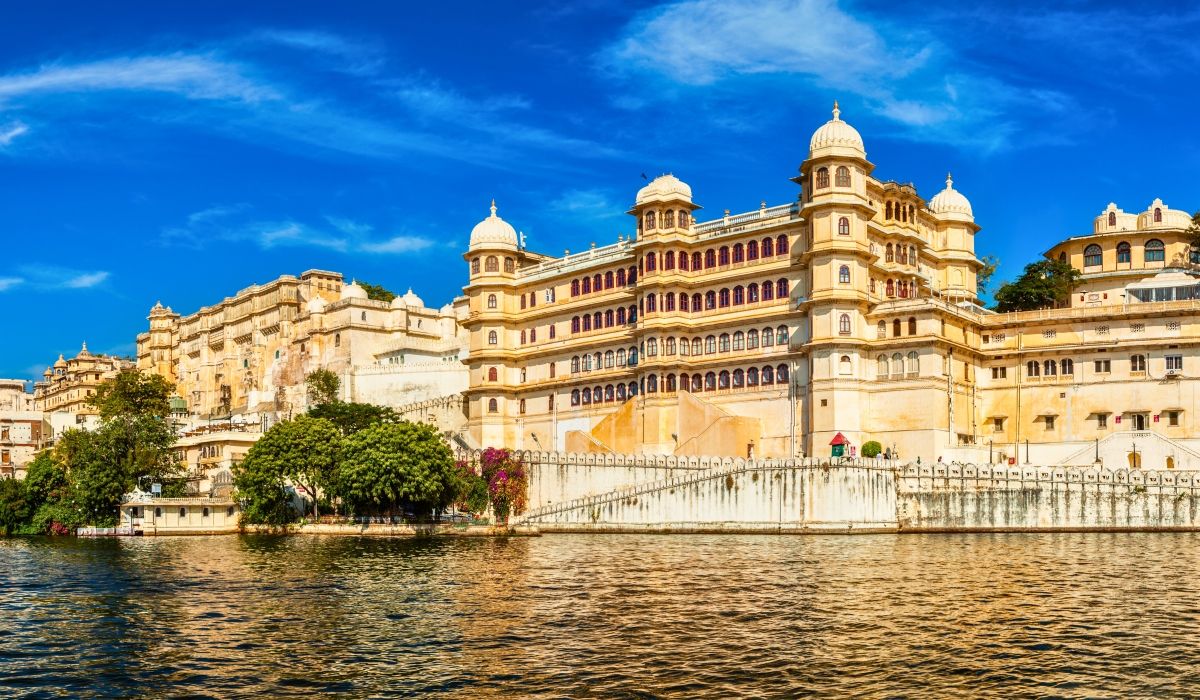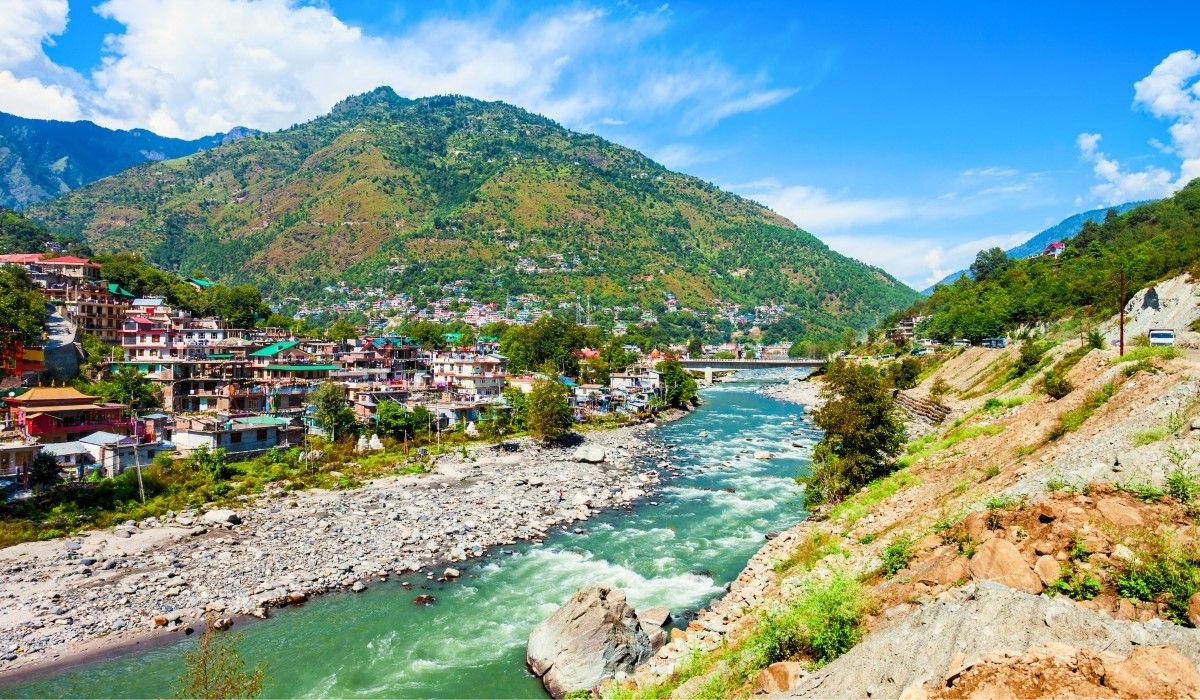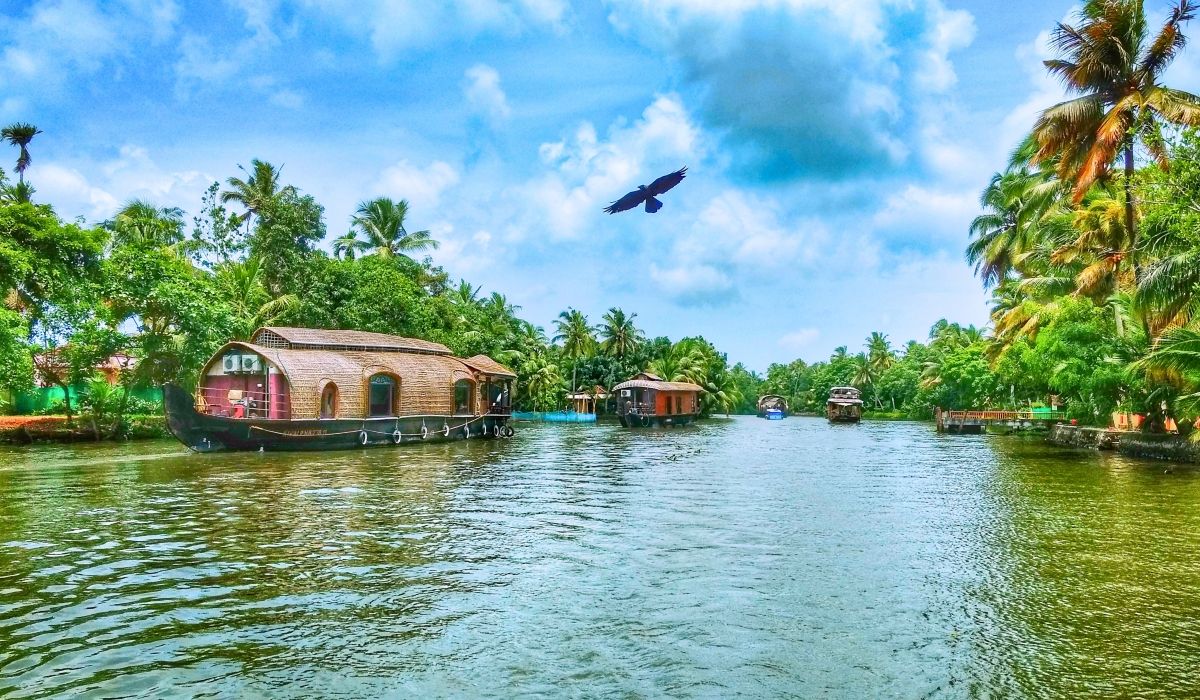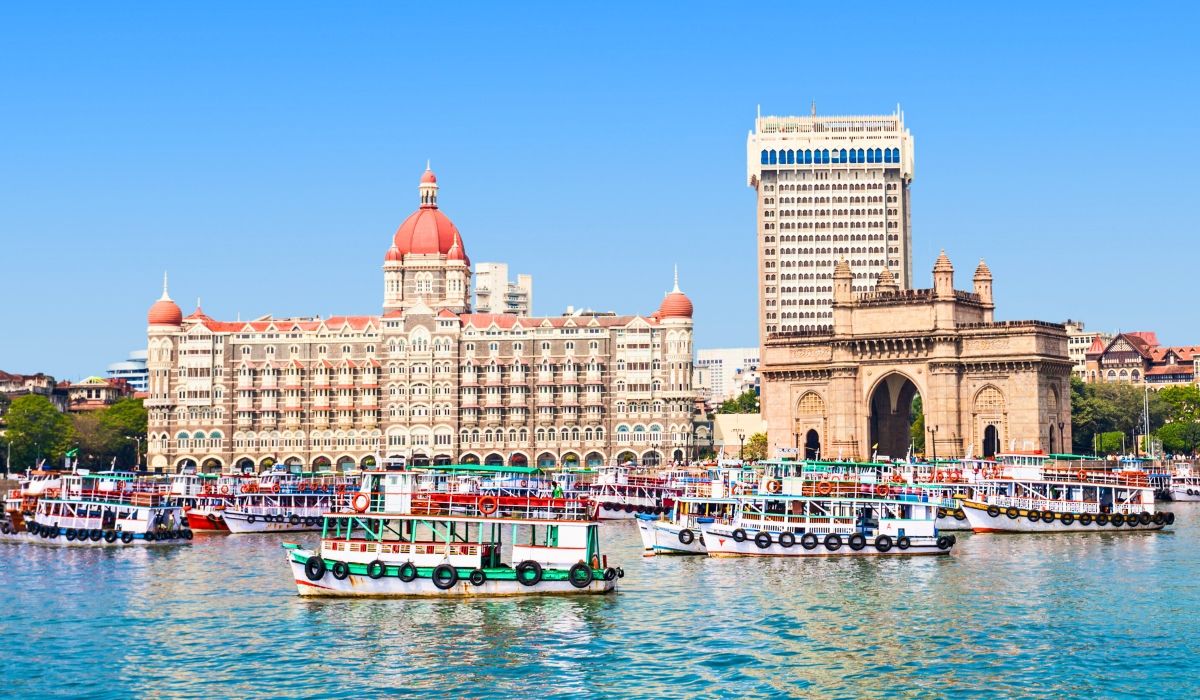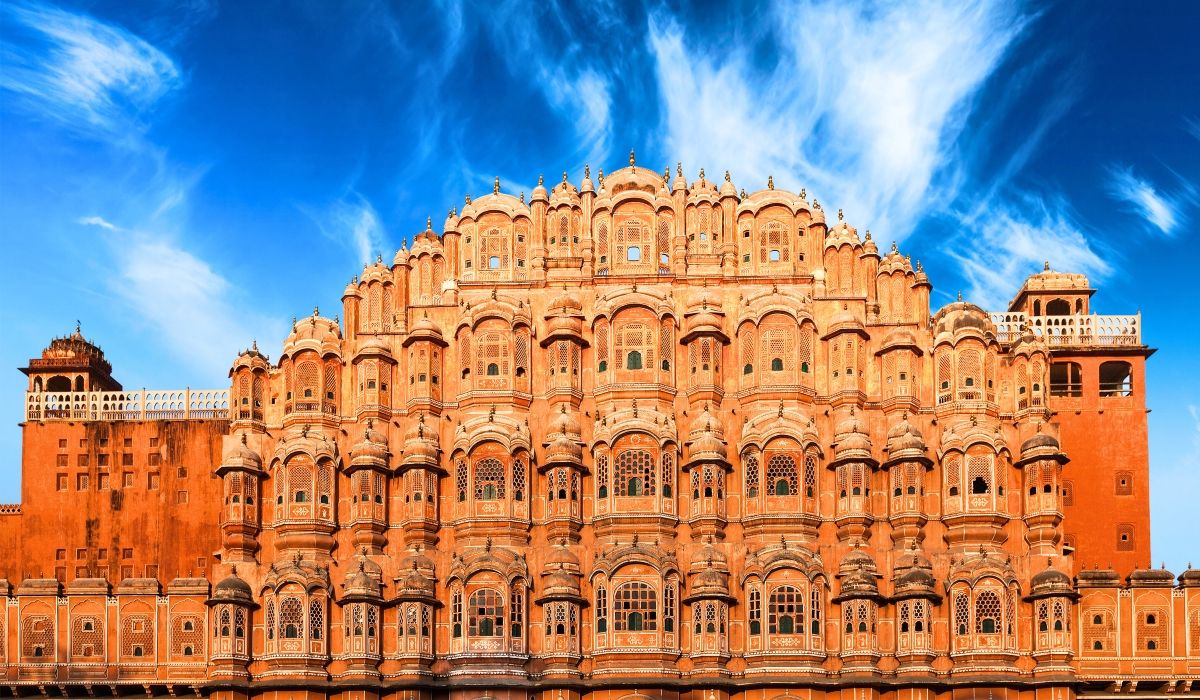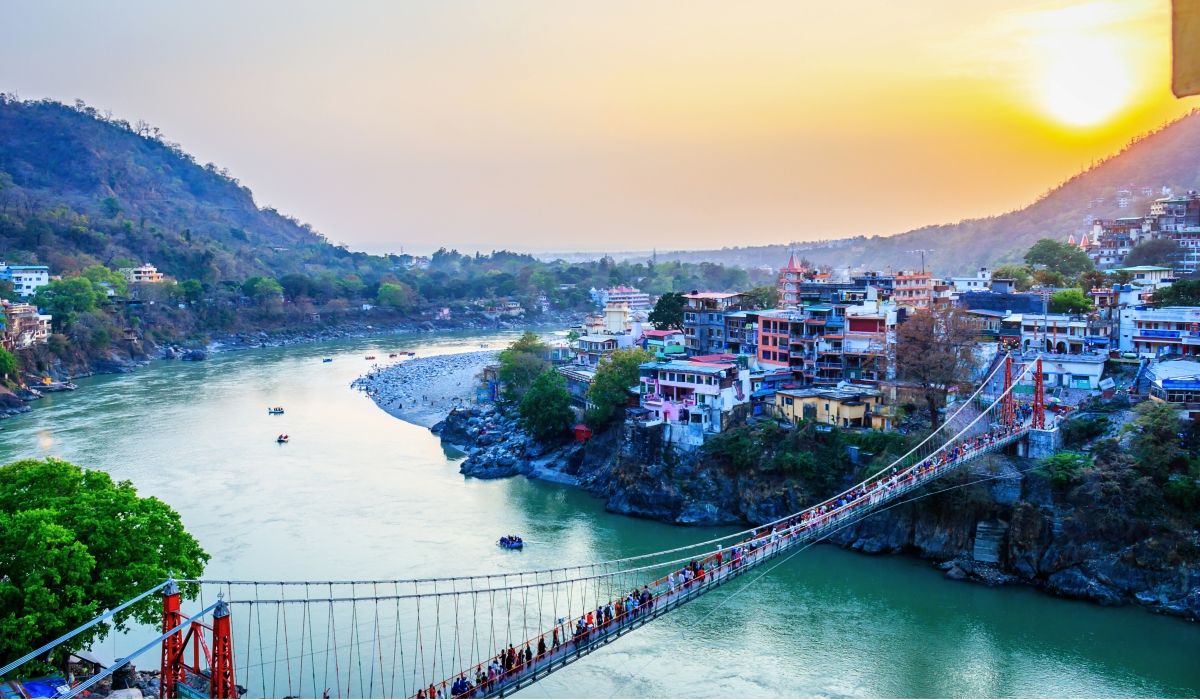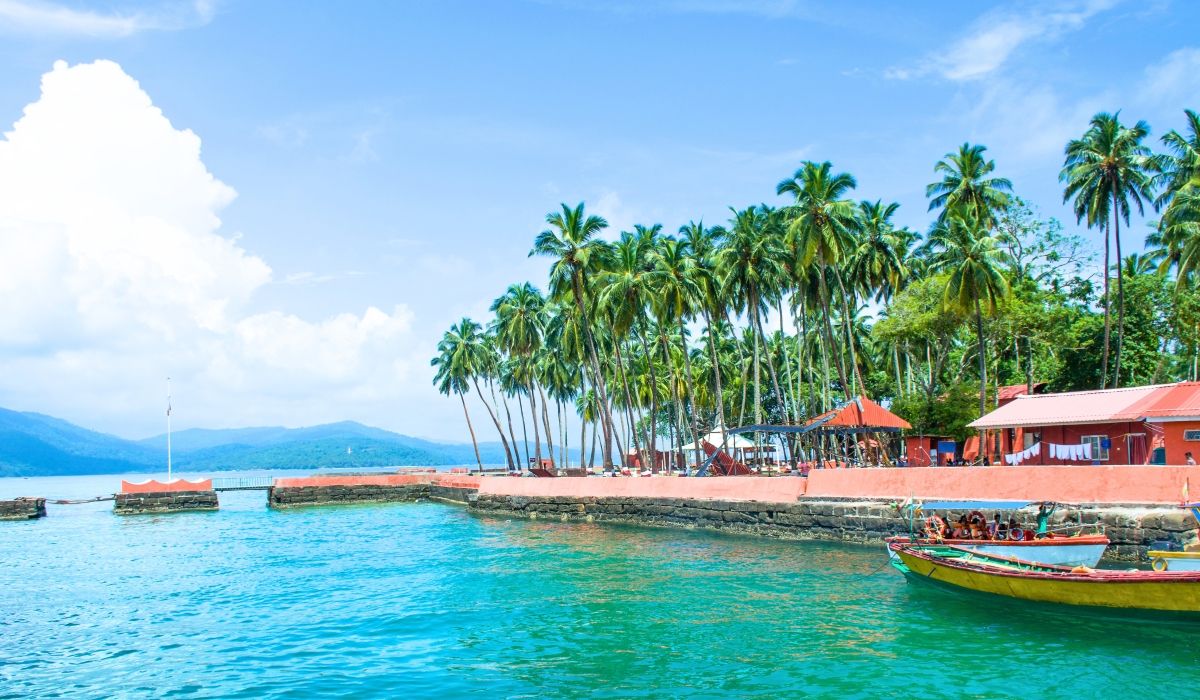Guide for Canadians Buying Property in India
Snippet: Buying property in India from Canada? MTFX lets you convert Canadian dollars to Indian rupees (INR) at highly competitive rates- up to 3–5x better than banks. Whether you're transferring funds for an apartment in Mumbai or a family home in Punjab, MTFX helps you send large payments securely and in full compliance with Indian regulations. Avoid delays, high fees, and poor exchange rates. Choose MTFX for fast, reliable CAD to INR transfers optimized for property deals.
Ready to buy property in India? Whether you're an expat or a resident, purchasing real estate can be an exciting venture. Here's everything you need to know before making the purchase.
Buying property abroad is an exciting journey with many options and potential, particularly when you are eyeing India. From rural landscapes to bustling cities, India offers many opportunities to purchase residential or commercial land at surprisingly affordable prices. Navigating the regulations and understanding cultural norms can be challenging, but doing so successfully will lead to a wonderful investment or home you can cherish for years. The Indian real estate market is advantageous and full of possibilities - no matter what type of property you're looking for, there's sure to be something perfect waiting!
Can foreigners buy property in India?
Foreigners who are not of Indian origin and do not reside in India for more than 182 days in a financial year generally cannot buy property in India, except for inheriting property. However, foreign nationals living in India with valid long-term visas may purchase residential or commercial property but are prohibited from buying agricultural land, plantation property, or farmhouses.
Can a Canadian citizen buy property in India?
Yes, Canadians residing in India may purchase immovable property in the country. However, they must obtain approvals and satisfy any relevant requirements imposed by governmental authorities such as State Governments. However, several restrictions on areas such as agricultural land, plantation properties, and farmhouses imposed by the Government of India's Ministry of External Affairs must be adhered to before purchasing any assets.
If you’re planning to buy property, it’s also important to consider how you’ll send money to India, as transferring large sums requires careful planning to secure competitive CAD to INR exchange rates and minimize fees.
Can a Non-Resident Indian (NRI) buy property in India?
Yes, a Non-Resident Indian Canadian citizen can buy property in India, such as residential land and flats to homes; however, agricultural land, plantation areas, or farmhouses cannot be acquired. An NRI is someone of Indian citizenship residing outside the country's borders.
An NRI has the right to transfer ownership of their property to a variety of people, which includes:
- Another NRI.
- An individual living outside India who is of Indian origin.
- Any Indian citizen located within India.
Indian citizens who are permanent residents of India may purchase agricultural land, plantation property, or farmhouses. Non-resident Indians (NRIs) who inherit any of these kinds of properties must be transferred to a permanent resident Indian citizen by law.
Documents required for NRI to buy property in India
If you're an NRI looking to purchase a property in India, here's what documents are typically required:
- For non-Indian passport holders, proof of NRI status, including a PIO or OCI (Overseas Citizen of India) card, is required.
- Permanent Account Number (PAN) Card
- Power of Attorney - If you're not completing the purchase yourself
- A valid proof of address and identity will be necessary when you finalize the sale of the property.

Can an Overseas Citizen of India (OCI) buy property in India?
An OCI cardholder can acquire property in India as long as it does not include agricultural land, plantation property, or farmhouse. A gift of real estate from an Indian resident relative is also allowed for the OCI Cardholder - similarly to those with NRI status. As such, when considering buying land in India, both the OCI and NRI are treated comparably.
The Foreign Exchange Management Act permits an OCI or any individual living abroad to possess, own and transfer properties they owned while a resident in India or those inherited from Resident Indians.
Process for buying property in India as an OCI
A Canadian citizen can buy property in India if they're Indian citizens living overseas. Payment for the property is to be done through Indian banking channels and may include different kinds of taxes, duties, and levies, depending on location. Funds can come from a bank transfer or an NRI account owned by the OCI. Foreign currency purchases and traveller's cheques are not allowed as payment methods.
Additionally, there’s also the possibility of getting home loans with any Indian banks that provide services to NRIs. While they are considered foreign nationals under the law, their rights remain similar when compared to NRIs at most financial institutions like banks.
When transferring funds, it’s crucial for buyers to monitor live exchange rates, as fluctuations in the CAD to INR rate can significantly impact the total cost of purchasing property in India.
Documents required for OCIs to buy property in India
To purchase a property in India, an OCI cardholder is required to present the following documents:
- OCI Card
- PAN card
- Passport and address verification, such as utility bills
- Work permit or employment contract
- Recent income tax forms and salary slips
- Passport-sized photo
- Bank statement for qualifying NRI accounts.
A Power of Attorney may be necessary if you're located outside of India when the transaction is made.
Can a Person of Indian Origin (PIO) buy property in India?
The Person of Indian Origin (PIO) card is being transformed into the Overseas Citizen of India card, so everyone should convert their PIO cards to an OCI as soon as possible before December 31st, 2024. From now on, having an OCI will be a necessity for those with an Indian background who want to travel and purchase property in India. Apart from that, there are many benefits, including lifelong visa-free travel to India, the freedom to stay for any duration without registration, parity with Indian citizens in financial, economic, and educational fields, simplified access to banking and investments, exemption from reporting requirements, eligibility for specific government schemes, and streamlined renewal processes, aligning with current legal frameworks for a more seamless connection to India.
Why buy property in India as a Canadian?
Buying property in India as a Canadian offers various benefits, including the potential for high returns on investment due to India's growing real estate market and economic development. It provides a way to maintain a connection with your cultural roots and have a vacation or retirement home in a familiar environment.
High return on investment opportunities
Investing in Indian real estate can yield high returns due to the country's rapid economic growth, urbanization, and increasing demand for residential and commercial spaces. Cities like Mumbai, Bangalore, and Delhi are experiencing substantial appreciation in property values, offering the potential for significant capital gains over time. This makes it an attractive option for Canadians looking to grow their wealth through international property investments.
Maintaining a connection to cultural roots
For Canadians of Indian origin, buying property in India helps maintain a solid connection to their cultural roots. Owning a home in the country can provide a sense of belonging and a place to celebrate traditions, festivals, and family events. It also helps keep the cultural bond with India alive for future generations, offering them a tangible link to their heritage.
Vacation or retirement home in a familiar environment
Having a property in India allows Canadians to enjoy extended vacations or retirement in a familiar setting. It offers the comfort of being in a known cultural and social environment while enjoying the benefits of living in a place with diverse landscapes, from mountains to beaches. For retirees, the lower cost of living in India can also make it an affordable option.
Rental income potential
The booming rental market in major Indian cities creates opportunities for property owners to earn rental income. With a growing middle class and demand for quality housing, renting out a property can generate steady income, helping cover the cost of the investment and providing an additional revenue stream.
Simplifying long-term visits and family stays
Owning property in India simplifies long-term visits, making it easier for Canadians to stay for extended periods without the hassle of finding accommodation. This is especially beneficial for families who frequently visit relatives or those who wish to stay for months. It offers the convenience of having a home away from home.
Favourable exchange rates for property investment
The favourable exchange rate between the Canadian dollar and the Indian rupee can make property purchases in India more affordable. Canadians can often get more value for their money, making it possible to invest in larger or more luxurious properties compared to what they could afford in Canada.
Supporting family members living in India
Owning a property in India can be a practical way to support family members residing there. It provides them a place to live or can be used for shared family vacations. It also serves as an asset that can be passed down to children or other relatives, ensuring a secure investment for the family.
Tax and legal benefits for non-resident Indians (NRIs)
As an NRI, Canadians of Indian origin may be eligible for certain tax exemptions and benefits under Indian law, such as reduced tax rates on rental income or capital gains from property sales. Additionally, the legal process for property ownership and repatriation of funds has become more streamlined for NRIs, making it easier to manage investments in India.
Requirements for purchasing property in India as a Canadian
Following are the documents required for buying property in India as a Canadian:
- Passport and/or OCI card: Non-Resident Indians are required to present their Indian passport. However, suppose one is a holder of a foreign passport. In that case, they can still purchase property in India with either an Overseas Citizen of India (OCI) card or a Person of Indian Origin (PIO) Card.
- PAN Card: This is mandatory for property transactions.
- Power of Attorney: Non-resident Indians must provide a legally binding and registered power of attorney, notarized if they cannot be in India for the purchase transaction. This specific POA must be authorized for executing property transactions; it is not a general legal instrument.
Best places to invest in property in India
India is one of the most sought-after countries for buying property. The country caters to a wide range of needs and budget levels, making it an excellent option for everyone looking to buy a property. Here are some of the best places to buy property in India.
Bangalore: Bangalore is the heart of India's tech industry, attracting professionals from across the country and worldwide. This city offers a robust rental market, making it ideal for those looking to earn rental income. Areas like Whitefield, Electronic City, and Sarjapur Road are popular with IT professionals and are seeing continuous infrastructure upgrades, including metro expansions, which further boost property values.
Mumbai: Mumbai's real estate market is one of the most expensive in India but also provides some of the highest returns due to constant demand for residential and commercial spaces. Neighbourhoods like Navi Mumbai, Thane, and Powai are growing rapidly, thanks to better connectivity through upcoming metro projects and the new international airport in Navi Mumbai, making them attractive investment destinations. Additionally, redevelopment projects in older parts of the city present lucrative investment opportunities.
Hyderabad: Hyderabad's real estate market is thriving, driven by a growing IT sector, major tech parks, and multinational companies setting up campuses. The city offers relatively lower property rates than other metro cities, with high appreciation potential. Areas like Gachibowli, Hitech City, and Kondapur are witnessing rapid development, providing a mix of residential and commercial spaces with excellent connectivity through new metro lines and expanding road infrastructure.
Pune: Pune is known for its strong education ecosystem, attracting students and professionals, which drives demand for rental properties. The city's growing IT industry further enhances its appeal for real estate investment. Areas like Hinjewadi, Wakad, and Kharadi, which host many IT parks, are popular with property buyers. The city's proximity to Mumbai and its well-developed infrastructure, including international schools, hospitals, and shopping centers, make it a favoured destination for property investment.
Chennai: Chennai's real estate market benefits from its diversified economy, including IT, manufacturing, and automobile industries. The city also has a strong rental market driven by a steady influx of professionals. Neighbourhoods such as OMR (Old Mahabalipuram Road), Velachery, and Porur offer excellent investment opportunities in residential and commercial properties. Chennai's coastal location and infrastructure projects, like metro expansions, further enhance its appeal.
Delhi NCR: The Delhi National Capital Region (NCR), which includes Gurgaon, Noida, and Greater Noida, offers a wide range of real estate options, from luxury apartments to affordable housing projects. These areas are supported by world-class infrastructure, including extensive metro networks, expressways, and international airports. Gurgaon is known for its high-end residential projects and commercial spaces. Noida and Greater Noida attract those seeking more affordable options with excellent connectivity to Delhi.
Kolkata: Kolkata's real estate market is characterized by affordable property prices compared to other major Indian cities, making it a good entry point for investors. The city is undergoing significant infrastructure development, such as the extension of metro lines and the growth of business hubs. Areas like New Town and Rajarhat are emerging as preferred locations for real estate investment, offering modern residential complexes, shopping centers, and proximity to the airport.
Best places to buy a vacation home in India
These locations offer natural beauty, tranquillity, and cultural experiences, making them ideal for vacation homes. Some of the best places to buy vacation homes in India, known for their scenic beauty and relaxed atmosphere, include:
Goa: Goa is not just a tourist destination but also a prime location for vacation home investments. The state's vibrant nightlife, beach resorts, and annual festivals make it an attractive spot for rental income through vacation rentals. Areas like North Goa, Anjuna, Calangute, and Candolim are popular due to their lively atmosphere, while South Goa offers quieter, more tranquil options. The state's well-connected transportation network, including an international airport, adds to its appeal.
Himachal Pradesh (Shimla, Manali): Shimla and Manali are sought-after destinations for those who wish to escape city life and enjoy a peaceful retreat in the hills. Real estate in these areas provides a serene environment with picturesque views of snow-capped mountains and lush greenery. These towns are also popular tourist destinations year-round, making them suitable for rental opportunities when the property is not in personal use. With ongoing infrastructure development, like better roads and connectivity, these hill stations are becoming more accessible.
Kerala (Munnar, Alleppey): Kerala offers some of the most scenic vacation home locations in India, with options ranging from hill stations in Munnar to houseboats on the backwaters of Alleppey. Properties here are suitable for those seeking a peaceful, nature-centric lifestyle, surrounded by tea plantations, spice gardens, and rivers. Kerala's emerging eco-tourism initiatives make it attractive for short-term rentals or boutique vacation properties.
Uttarakhand (Nainital, Dehradun, Mussoorie): Uttarakhand's hill stations, like Nainital, Dehradun, and Mussoorie, provide the perfect environment for a vacation home with stunning Himalayan views. These areas offer a blend of nature, adventure activities, and a cool climate, attracting domestic and international tourists. The state's push towards sustainable tourism and eco-friendly development adds long-term value to real estate investments.
Rajasthan (Udaipur, Jaipur): Owning a vacation home in Rajasthan offers a unique opportunity to immerse in the state's rich cultural heritage and royal legacy. Cities like Udaipur, with its lakes and palaces, and Jaipur, known for its forts and colourful bazaars, provide a regal lifestyle experience. Properties here often feature traditional architecture with modern amenities, catering to those who appreciate cultural richness while enjoying a luxurious vacation experience.
Maharashtra (Lonavala, Alibaug): Lonavala and Alibaug are ideal for buyers looking for vacation homes near Mumbai. Lonavala's misty hills and waterfalls make it popular for nature lovers, while Alibaug offers beachside properties and coastal charm. Both destinations have solid rental potential, particularly for short-term weekend stays, and the recent development of better road networks and sea routes from Mumbai makes these areas easily accessible.
Andaman and Nicobar Islands: The Andaman Islands offer pristine beaches, crystal-clear waters, and tropical weather, making them a dream location for a vacation home. Ideal for those looking for a secluded and luxurious escape, the islands are perfect for eco-friendly resorts or vacation rentals catering to scuba divers and beach enthusiasts. With growing tourism infrastructure, including new flights and resort developments, the region is becoming more appealing for property investment.
Tax implications for Canadians buying property in India
When you purchase a property in India, you will be responsible for various local taxes such as stamp duty, registration fees, and legal costs. Additionally, if the transaction is made through a realtor, their fee must also be factored into the cost of buying the property. If you remain an NRI while buying a property in India, the only income tax required is likely on income earned within India.
If you become a tax resident in India, your obligation to pay taxes changes. Professional advice should be taken on ensuring all necessary tax requirements are met in India and the country of residence. This will guarantee compliance with relevant taxing laws. If you want to purchase a property in India for residential or investment purposes, use this guide as your initial resource to familiarize yourself with the necessary steps.
Send money home to invest in property this Diwali
As the Diwali shopping season approaches, it’s the perfect time to consider investing long-term by buying property in India. This Happy Diwali celebration isn’t just about sharing love and light; it’s also a great opportunity to build a future for your family back home. Whether you’re looking to invest in a family home, a vacation retreat, or a rental property, choosing to send money home this Diwali to purchase a property could be a wise financial decision.
Diwali is traditionally seen as an auspicious time to make significant investments and many real estate developers offer special deals during the festive period. By sending money home this Diwali, you can take advantage of these offers and secure a property that aligns with your future goals. Whether you’re purchasing in a bustling city or a serene countryside, this investment can serve as a lasting gift for your loved ones.
While you’re making this significant financial move, don’t forget to send Diwali e-greetings along with your thoughtful investment. Share a message like "Sending love and light this Diwali" or "Wish you a happy Deepavali" to bring warmth and joy to the occasion. This Happy Diwali celebration can be the start of a new chapter for you and your family as you invest in their future.
Buying property in India - Step-by-step guide
When buying property in India as a Canadian, it is essential to take the following steps.
Step 1 - Engage a local solicitor and notary
Hire a local solicitor and notary who can handle the legal aspects of your property transaction in India, ensuring compliance with all local regulations.
Step 2 - Find a realtor in the area
Locate a reputable realtor who is familiar with the area where you plan to buy. They can assist with finding suitable properties that meet your criteria and facilitate negotiations.
Step 3 - Arrange power of attorney (if necessary)
If you will not be physically present in India to complete the transaction, set up a power of attorney for a trusted representative who can act on your behalf.
Step 4 - Conduct due diligence and sign the sale agreement
Once you have selected a property and agreed on the sale price, your solicitor will conduct all due diligence checks (such as verifying ownership and property title). They will then prepare a sale agreement, which must be signed in person or by your representative.
Step 5 - Register the property purchase with local authorities
After finalizing all documents and payments, ensure the property purchase is registered with the local subregistrar's office. This step is essential for the legal transfer of ownership.
How to pay for property purchases in India as a Canadian?
Transactions for an immovable property must be processed digitally via Indian banking channels, which include payment of all relevant taxes and levies. NRIs/OCIs can also utilize their NRE/FCNR(B)/NRO accounts to make these payments. Please note that neither travellers' cheques nor foreign currency notes are acceptable forms of payment in this case. However, when buying a property in India, you'll need to convert CAD into INR to pay for property purchases in India as a Canadian.
How to get the best exchange rate when buying property in India as a Canadian?
Understanding the currency exchange rate between two countries is vital when buying property. It can be challenging to comprehend foreign exchange rates when converting one currency for another - especially with constant fluctuations. To get the most advantageous Canadian dollar to Indian rupee conversion rate when purchasing a property, research and compare providers' exchange rates. This will help you avoid hidden fees and secure the optimum rate while buying real estate in India as a Canadian. MTFX also offers multiple tools to ensure you get the best CAD/INR exchange rate.
Forward contracts: If you like the current CAD/INR rate but don't want to send money right now, you can lock in the exchange rate for a future transaction using a forward contract.
Rate alert: On the other hand, if you are not happy with the current rate or want to keep an eye on the market, you can also set up a CAD to INR rate alert and get instantly notified when the exchange rate hits your desired target.
What ways can be used by Canadians to buy property in India?
When it comes to purchasing property in India, Canadians have two main options – using a bank or a money transfer service provider.
- Banks are the traditional way used for transferring money. However, they can incur high charges and restrictions when making international transactions, including delays.
- On the other hand, using a foreign exchange service provider offers an efficient and cost-effective solution. It is more secure since payments are guaranteed without hidden costs or fees. Furthermore, it simplifies the entire process from start to finish and ensures that payments remain safe and secure throughout the entire transaction.
Can I use my bank to convert Canadian Dollars to INR?
Yes, banks can be used to convert Canadian Dollars into Indian Rupees (CAD/INR). However, it is not the best choice to use a bank for currency conversion and money transfer when buying property in India, such as:
- Unfortunately, the exchange rates they provide are not very competitive.
- Banks usually charge higher transaction fees.
- Currency exchange rates can lead to potential delays.
- Additionally, it is not always possible to easily track transfers or receive immediate funds.

Why is MTFX the perfect option for international money transfers?
MTFX is the perfect choice for Canadians looking to make international money transfers, as it offers:
- Offers competitive exchange rates
- Secure and cost-effective solution
- Quick transfer within 1-2 days
- Transactions remain safe from potential delays
- No hidden costs or fees.
- 24/7 customer service support
Open an account today to enjoy simple, secure, and cost-effective international payments to buy property in India with MTFX.
FAQs
1. What’s the best way to transfer CAD to INR for a property purchase in India?
The most cost-effective and secure option is to send money to India from Canada using MTFX. You'll benefit from lower fees and better exchange rates than traditional banks.
2. Can I lock in a CAD to INR exchange rate with MTFX?
Yes, MTFX offers money transfer options that let you lock in today’s rate for future transfers. This protects your real estate investment from currency fluctuations.
3. How does MTFX compare to banks for CAD to INR exchange rates?
MTFX offers bank-beating exchange rates and significantly lower transfer fees. This means you get more INR for every Canadian dollar.
4. Are there limits to how much CAD I can send to India for real estate?
You can send large sums internationally with MTFX’s high-value transfer services. These are ideal for property purchases and include expert support and compliance checks.
5. Does MTFX help with recurring international payments like mortgages in India?
Yes, you can automate recurring CAD to INR transfers for mortgage, rent, or utilities. MTFX’s recurring payment solutions ensure your bills are paid on time with great rates.
6. Can Canadians legally buy property in India?
Only NRIs, OCIs, or PIOs are eligible to buy property in India. Read our NRI property investment guide for legal details and eligibility.
7. What documents are required to buy property in India as a Canadian?
You’ll need a PAN card, OCI/PIO card, passport, and Indian bank account. Our documentation checklist breaks it all down.
8. Are there any property taxes or legal fees I should know about?
Yes, Indian property purchases involve stamp duty, registration, and legal fees. Use our property abroad checklist to prepare.
9. Can I get financing in India as a Canadian buyer?
Some Indian banks offer home loans to NRIs, but terms vary. Learn how foreign exchange financing through MTFX can support your plans.
10. Is there a best time of year to buy property in India?
Many buyers choose festive periods or low-rate seasons to invest. With MTFX, you can set exchange rate alerts to optimize your timing.
Open an account today to enjoy simple, secure, and cost-effective international payments to buy property in India with MTFX.
Related Blogs
Stay ahead with fresh perspectives, expert tips, and inspiring stories.

Keep updated
Make informed decisions
Access tools to help you track, manage, and simplify your global payments.
Currency market updates
Track key currency movements and plan your transfers with confidence.
Create an account today
Start today, and let us take the hassle out of overseas transfers.
